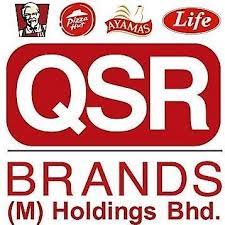 KUALA LUMPUR, Jan 26 (Bernama) — The Ministry of International Trade and Industry (MITI) expects total export surplus for the halal industry this year to exceed the RM32 billion achieved in 2013.Deputy Minister Datuk Hamim Samuri said there is massive untapped growth potential the global halal industry which local Halal players should tap.
KUALA LUMPUR, Jan 26 (Bernama) — The Ministry of International Trade and Industry (MITI) expects total export surplus for the halal industry this year to exceed the RM32 billion achieved in 2013.Deputy Minister Datuk Hamim Samuri said there is massive untapped growth potential the global halal industry which local Halal players should tap.
“The weakening ringgit can also be a key driver to the exports as importers can buy products at lower prices,” he told reporters after the soft launch of Halal Ingredients Asia 2015 here today.
Meanwhile, Halal Development Industry Corporation Chief Executive Officer Datuk Seri Jamil Bidin expressed hope the number of local players of certified Halal ingredient manufacturers would increase this year.
“To date, we have about 200 Halal manufacturing companies certified by the Department of Islamic Development Malaysia (Jakim), 70 per cent of which are multi-national companies.
“We hope more Malaysian companies, including government-linked companies (GLCs), could register under this industry and grab the massive opportunities,” he said.
Jamil said HDC has set a target of adding 300 new companies to the halal industry annually, with around 100 Halal certified companies coming from the Halal ingredients business.
For the first half of 2014, exports of Halal products by certified companies stood at RM18.8 billion, with Halal ingredients contributing RM6 billion.
Earlier in his speech, Hamim said Halal ingredients should be a focus area for research and development (R&D) to cater to the growing demand for Halal end products.
“Malaysia has a large palm oil production, and palm oil-based ingredients could be processed to ensure Halal end products,” he added.
However, he said, Halal ingredient companies are facing numerous issues and challenges particularly in relation to R&D to produce Halal ingredients and limited supplies of raw materials to produce Halal ingredients.
“It is a new area of growth which presents opportunities for small and medium enterprises (SMEs) in Malaysia. Halal ingredients support the food and beverage, cosmetic and personal care industries.
“There is potential for the manufacturers, distributors and retailers with demand for Syariah-compliant products continuing to grow,” he added.
— BERNAMA



.jpg)